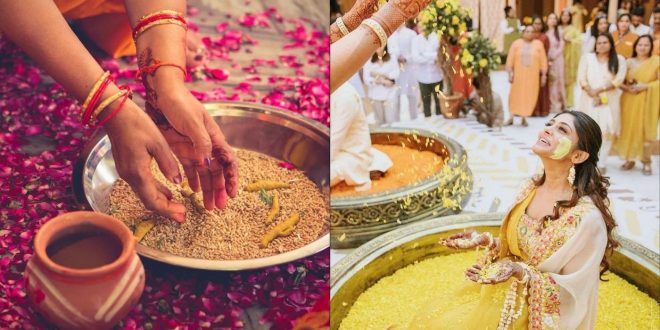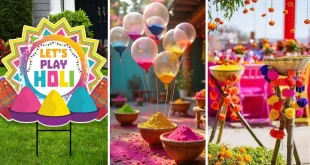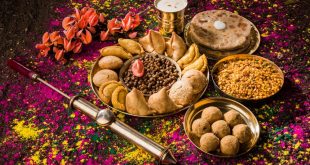The Haldi ceremony is a vibrant and significant prenuptial ritual in Indian weddings. This event, steeped in tradition, is celebrated with great zeal across various Indian communities. The ceremony involves the application of a turmeric paste, also known as Haldi, on the bride and groom’s body, signifying the start of wedding festivities.
This article delves into the various aspects of Haldi ceremonies, exploring their cultural significance, historical roots, and the unique ways they are celebrated across different Indian regions.
Understanding the Haldi Ceremony
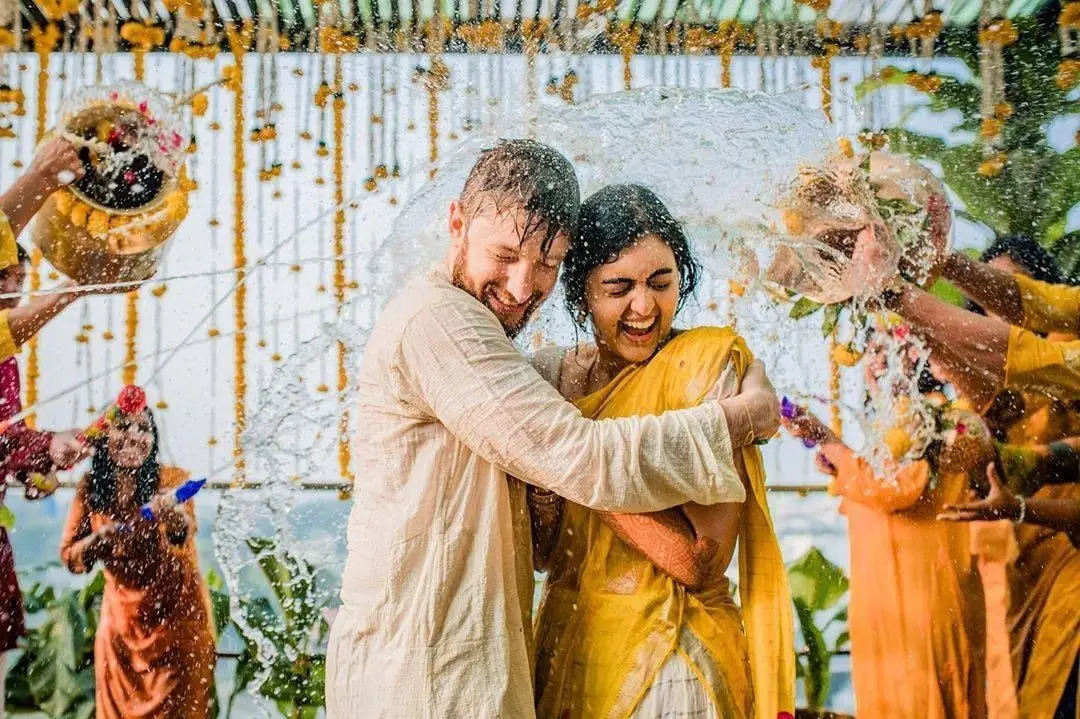
What is a Haldi Ceremony?
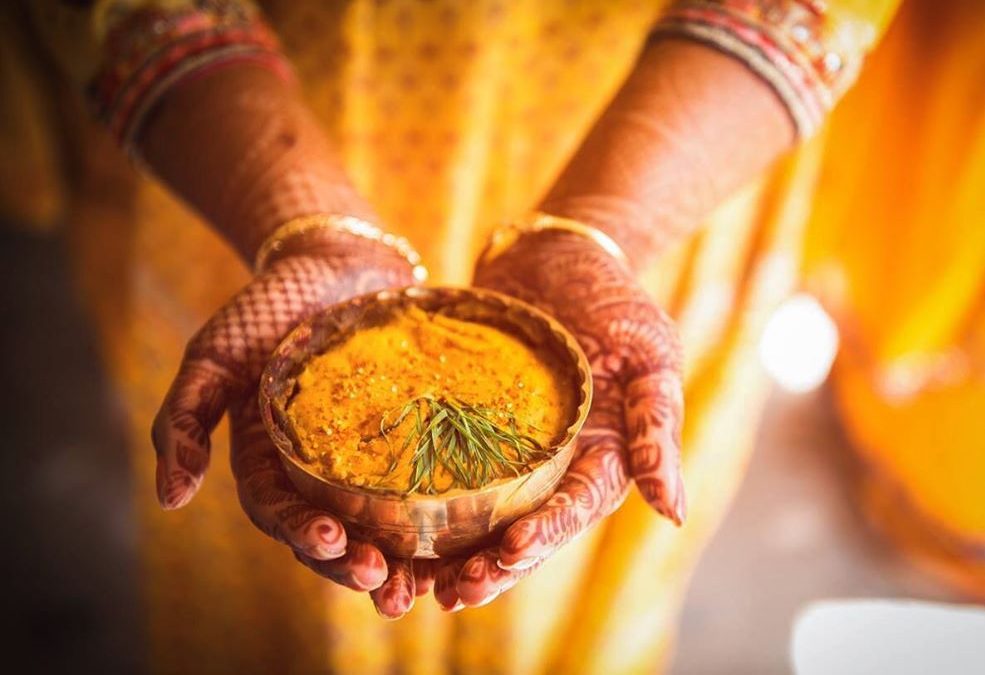
The Haldi ceremony, also known as Pithi, Tel Baan, Gaye Holud, Ubtan, or Mandha in different Indian cultures, is a pre-wedding event that is a part of traditional Indian weddings. The ceremony typically takes place a day or two before the wedding day.
During this ritual, a paste made from turmeric, oil, and water is applied to the bride and groom’s face, neck, hands, and feet. The key participants in this ritual are the couple’s closest family members and friends. The atmosphere during the ceremony is exuberant, filled with music, dance, laughter, and love.
What is the Symbolic Significance of Haldi Ceremony?
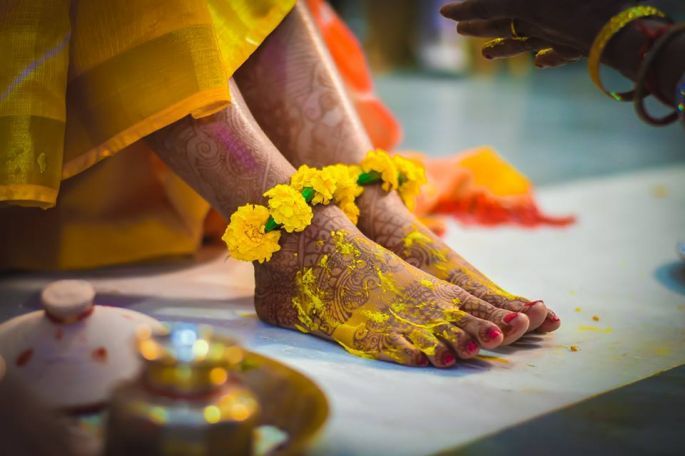
The Haldi ceremony holds deep symbolic significance in Indian weddings. It is believed to ward off evil spirits and bring good luck to the couple. The ritual is also seen as a purification process, preparing the couple for their new journey together.
In Indian culture, the bright yellow color of turmeric, from which Haldi is derived, is considered auspicious. It symbolizes prosperity, purity, and fertility. The application of Haldi paste is believed to bring a natural glow to the couple’s skin, signifying their inner radiance and joy.
The Cultural Heritage of Haldi Ceremony
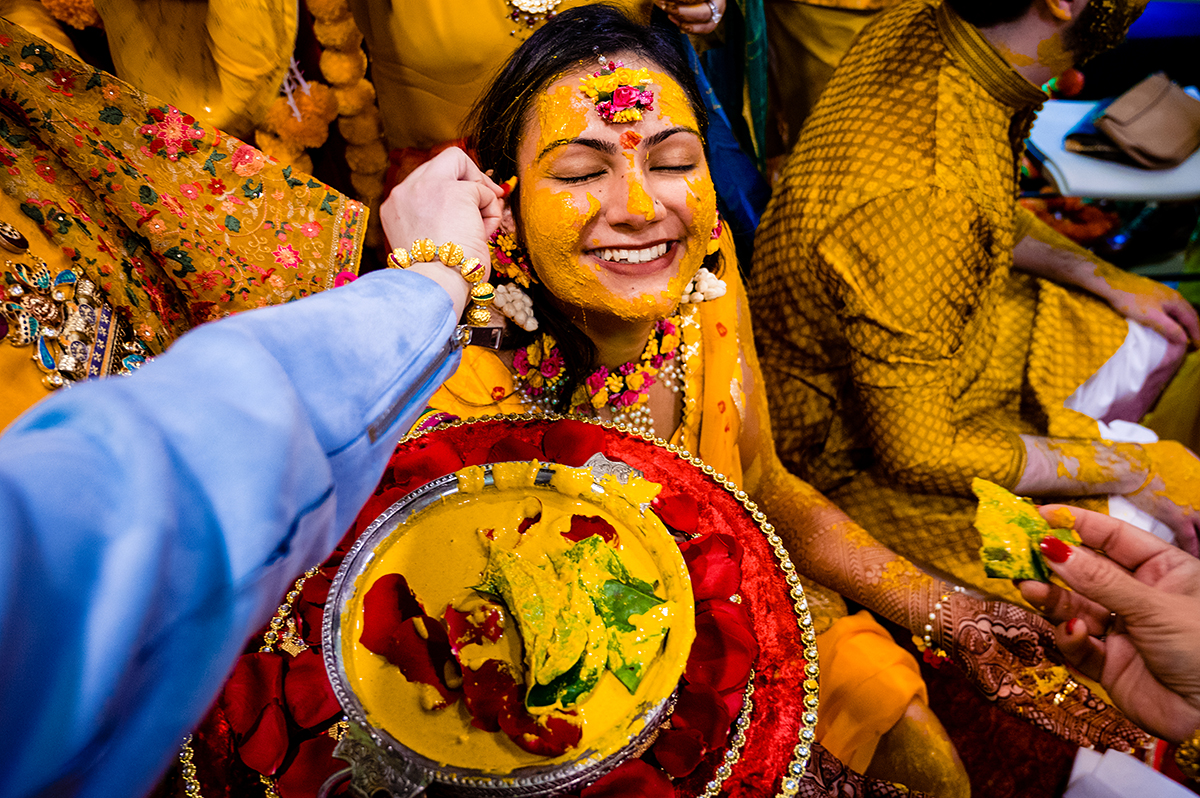
What are the Historical Roots of Haldi Ceremony?
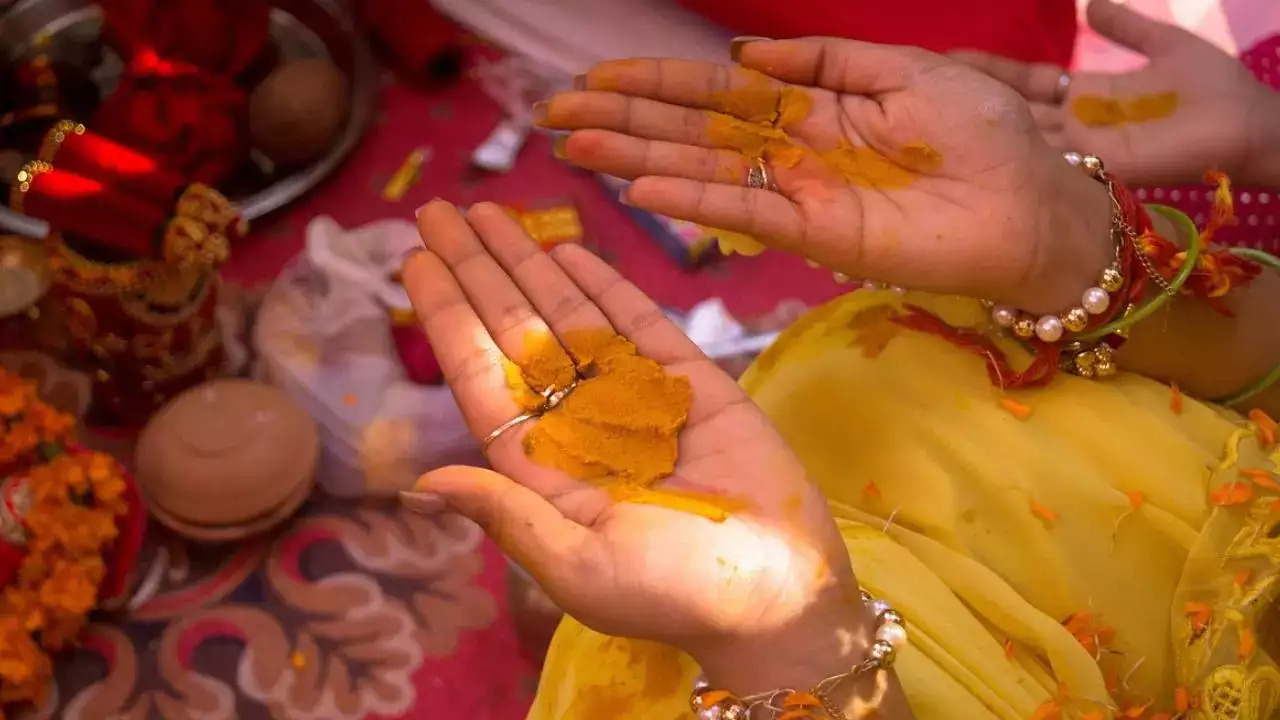
The Haldi ceremony has a rich historical background that dates back to the Vedic era. The use of turmeric in religious rites during this period is well-documented. Ayurvedic scriptures also mention the use of turmeric for its healing and beautifying properties.
Over the centuries, the tradition of the Haldi ceremony has been handed down from generation to generation, retaining its importance in Indian weddings. The ritual symbolizes the cultural identity and heritage of the Indian subcontinent.
What are the Regional Variations of Haldi Ceremony?

The Haldi ceremony is celebrated in unique ways across different regions of India. In Gujarat, the ritual is known as Pithi, while in Rajasthan, it is referred to as Haldi Kachera. The ceremony is known as Haldi Kunku in Maharashtra and Haladi Shastra in Karnataka.
Despite the variations in names and practices, the underlying symbolism and significance of the Haldi ceremony remain the same across these cultures. The ritual is a testament to the rich diversity of Indian traditions and the unity underlying this diversity.
The Process of Haldi Ceremony
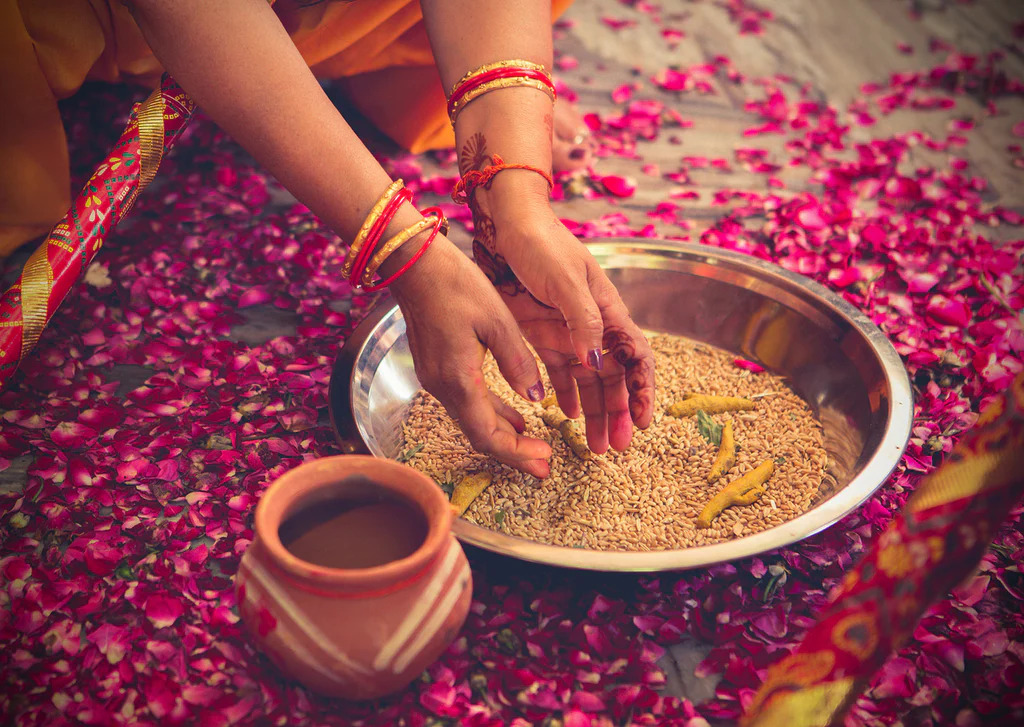
How to do Preparations for the Haldi Ceremony?
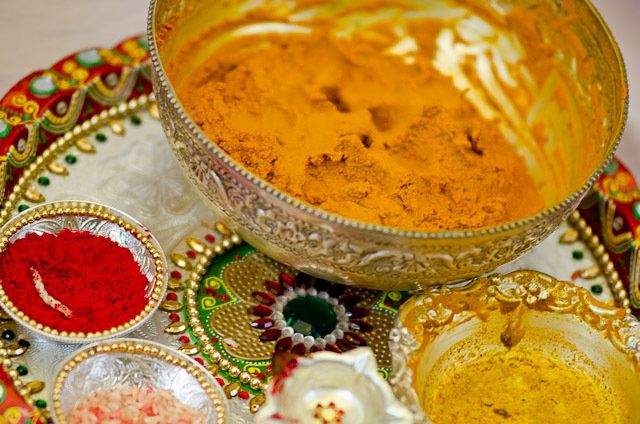
The preparations for the Haldi ceremony usually begin a few days before the wedding. The families of the bride and groom come together to prepare the Haldi paste. This paste is made by combining turmeric and sandalwood powder with water or rose water.
The preparation of the Haldi paste is a communal activity that fosters a sense of unity among the family members. This sense of togetherness is a reflection of the coming together of two families through the bond of marriage.
What is the Sequence of Events in a Haldi Ceremony?
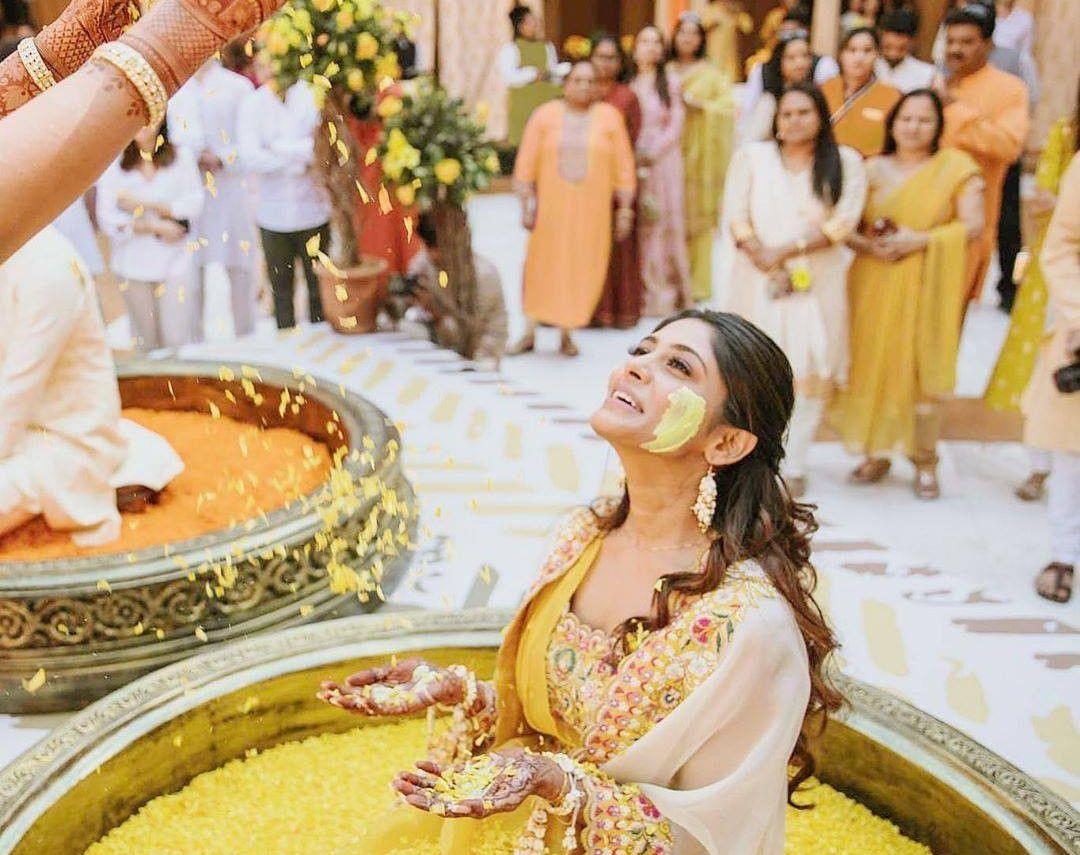
On the day of the Haldi ceremony, the bride and the groom are seated separately in their respective homes. The Haldi paste is then applied to their faces, necks, hands, and feet by the family members and friends.
The application of the paste is often accompanied by singing, dancing, and merriment, making the ceremony a lively and joyous occasion. After the Haldi application, the bride and groom are required to take a ceremonial bath. This bath signifies the cleansing of their bodies and souls, preparing them for the sacred bond of marriage.
The Impact of Haldi Ceremony on Indian Weddings
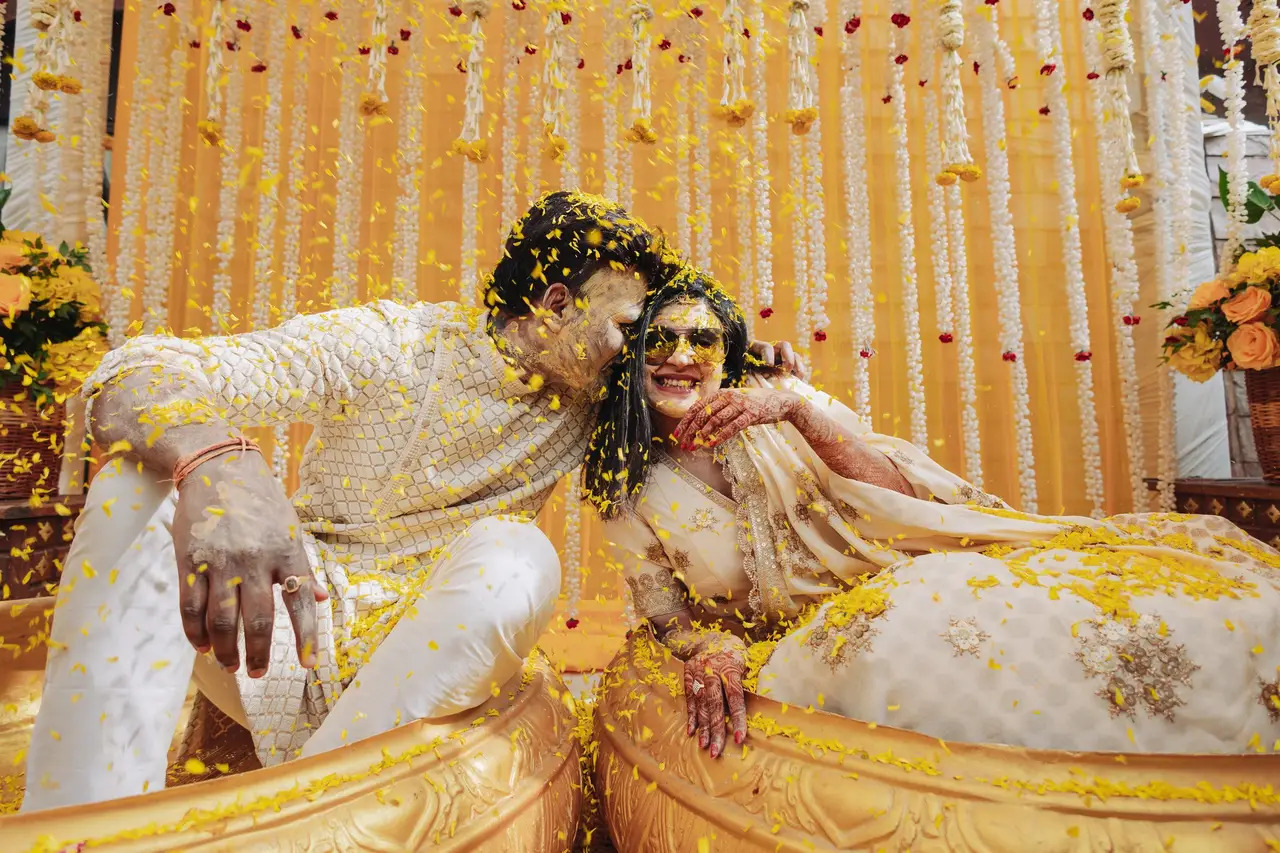
Haldi Ceremony as a Pre-Wedding Ritual
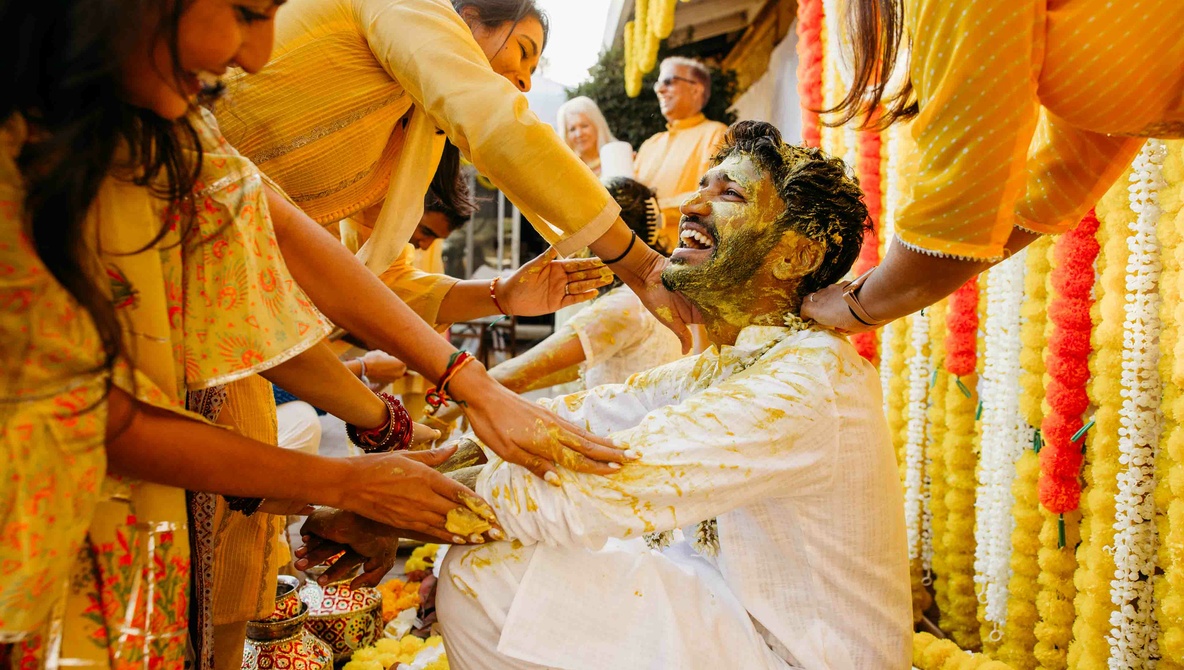
As a pre-wedding ritual, the Haldi ceremony sets the tone for the wedding celebrations. It marks the commencement of the wedding festivities and generates a sense of excitement and anticipation among the participants.
The Haldi ceremony is usually followed by other pre-wedding rituals such as the Mehendi ceremony. These rituals together create a festive atmosphere, adding color and joy to the wedding celebrations.
Why Haldi Ceremony is Considered as a Symbol of Blessings?
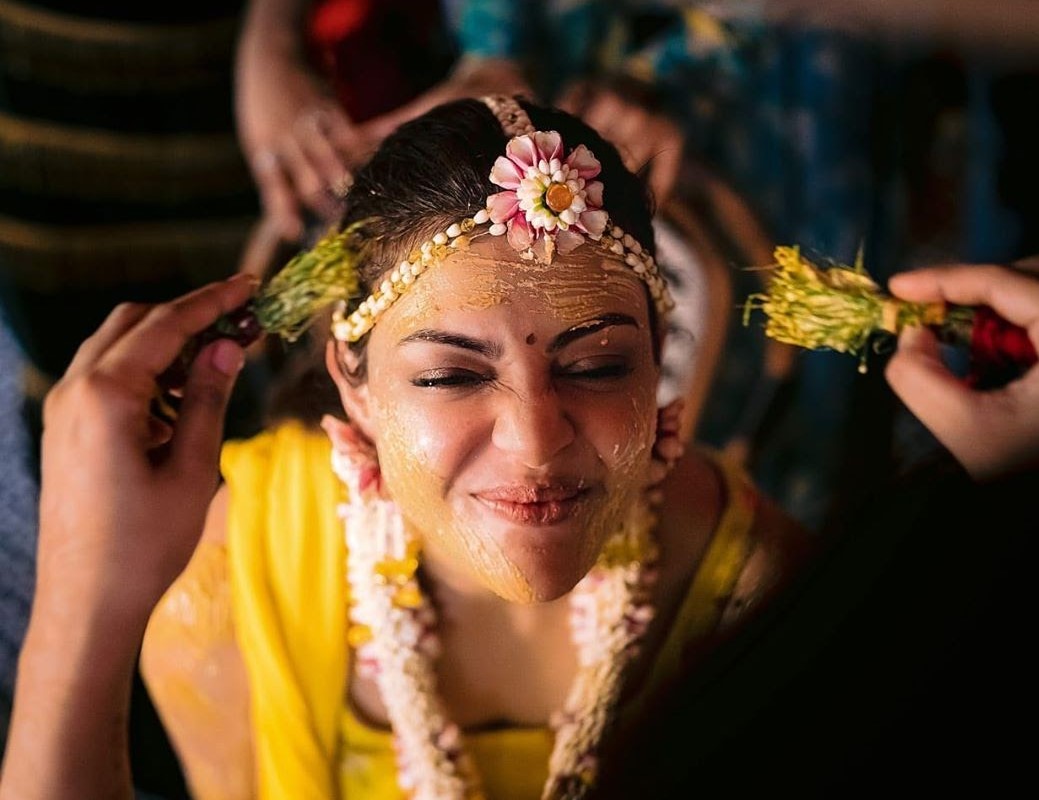
The Haldi ceremony is also a platform for the family members and friends to bless the couple. By participating in the ritual and applying the Haldi paste, they bestow their good wishes on the bride and groom.
The blessings conveyed during the Haldi ceremony are believed to bring good luck, prosperity, and happiness to the couple. They symbolize the love and support of the family and friends, strengthening the couple’s bond as they embark on their marital journey.
The Haldi ceremony is a vibrant and significant part of Indian weddings. It is a ritual that encapsulates the rich cultural heritage of India and the deep symbolic significance attached to Indian wedding traditions.
Through its unique practices and profound symbolism, the Haldi ceremony adds a touch of color, joy, and cultural richness to Indian weddings. It is a testament to the beauty and diversity of Indian traditions, and the unity underlying this diversity.
By understanding the intricate rituals and rich significance of the Haldi ceremony, one can appreciate the depth and beauty of Indian culture and its profound influence on the celebration of love and union.
To find the right wedding vendors, visit venuelook.com/vendors.
For A-Z of wedding planning and decorations, contact us at weddings.venuelook.com.
You May Also Like:
- Reasons Why Should Brides RENT Their Lehengas?
- Amazing Tips To Create The Perfect Wedding Favours!
- Best Cocktail Party Ideas
- Cocktail Party Hosting Tips, Food and Drinks Menu Ideas
- Cocktail Party Ideas
- 10 Easy to mix Cocktail Recipes for Parties
- Cocktail Ideas for Dinner Parties
Have you sent out invitations for your upcoming event? If not, save paper and send free online invitations now.
Looking for a party venue? Browse and book best-suited party venues from VenueLook.com
 Event, Party & Wedding Planning Tips & Ideas for Celebrations Party and Event Planning Tips, Resources and Venues
Event, Party & Wedding Planning Tips & Ideas for Celebrations Party and Event Planning Tips, Resources and Venues
